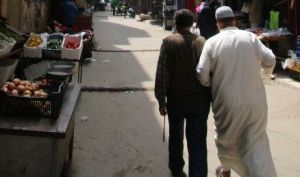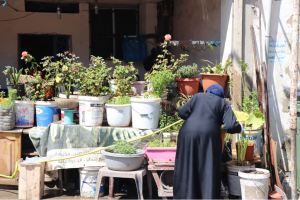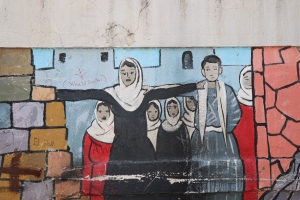How is the COVID-19 global pandemic affecting Syrian refugees living in Turkey? In the first of a two part blog series, Selma Akay Erturk explores some of the ways that COVID-19 has changed the lives of Syrian refugees, who continue to make and be affected by diverse decisions relating to migration and mobility. This first blog examines how decisions by Syrian refugees, particularly relating to Ramadan visits immediately prior to the eruption of the pandemic, and decisions by the Turkish state relating to the ‘temporary protection status’ of Syrian refugees and their access to employment, education, housing and health care have had an effect on the lives of Syrian refugees. In a second piece (here), Selma Akay Erturk examines the ways that different institutions in Turkey have responded to the effects of the spread of COVID-19 on Syrian refugees in the country.
If you found this piece of interest you can read the second in this series (here) and visit the recommended reading at the end of this piece.
The effects of COVID-19 on Syrian refugees in Turkey
by Selma Akay Erturk, Associate Professor of Human Geography at Istanbul University and Visiting Fellow in UCL Migration Research Unit.
Turkey continues to host the highest number of refugees in the world, including over 3.5 million Syrian refugees. The vast majority of these people live in cities, towns and villages, with only 63,718 living in seven camps in five provinces near the Turkish-Syrian border by the end of March 2020. With different perspectives on migration and mobility, including different visions of how to achieve a good life, this piece explores some of the ways that different groups of Syrian refugees have been affected by the COVID-19 pandemic in exile. In a second piece (here), I trace the ways that different institutions in Turkey have responded to the effects of the spread of COVID-19 on Syrian refugees in the country.
Background
On March 11, 2020, the same date that the World Health Organisation (WHO) declared that COVID-19 was a global pandemic, and asked countries to take stringent measures to stop the virus spreading, the Turkish Ministry of Health announced the first case of COVID-19 in the country. A month after this announcement, on 19 April, 86,306 people were confirmed as having been infected by COVID-19, 2,017 people had died, and 11,976 had recovered. With the Minister of Health having asserted on 10 April that all patients living in Turkey are included in COVID-19 statistics, irrespective of nationality or legal status, by mid-April, there had still been no confirmed cases of Syrian refugees infected with COVID-19 in Turkey.
In the time of COVID-19, as before the eruption of the pandemic, Syrian refugees in Turkey have held highly diverse opinions about how, and where, they wish to live, today and in the future. They have continued to make, and be affected by, diverse decisions relating to migration and mobility, including the following three approaches.
Ramadan visits and border closures
As in previous years, in early-2020 some Syrian refugees had been planning to spend some or all of the Muslim holy months – including the month of Ramadan and the celebrations of Eid al-Fitr and Eid al-Adha – in Syria and then to return to Turkey. Indeed, around the world, people affected by conflict and displacement seek not only to stay alive but also to lead meaningful lives, including by taking different steps to celebrate important religious festivals with family members (see here and here). In late-February and early-March, with the permission of the Turkish local level authorities and as reported in the Turkish media on 5 March, approximately 2,000 Syrian refugees passed through the Öncüpınar and Elbeyli border gates and crossed to Syria.
These refugees, who had only intended to return for a short period to Syria to spend time with their families during this holy period, however, are now likely to be amongst millions of people in Syria who remain ‘stuck’ in the country. This is because, a day after Turkey’s first case of COVID-19 was announced on 11 March, Turkey closed the Turkish-Syrian border (Turkey eventually closed all of its borders on 18 March). Syria in turn closed all of its international borders due to COVID-19 on 24 March. For as long as the Syrian-Turkish border remains closed, Syrians will be unable to either return to Turkey, or seek to cross the border for the first time in search of refuge, as people in Syria continue to flee ongoing hostilities and violence in the country.
Seeking another way: the Turkish-Greek border
At the same time as some Syrians were deciding to return temporarily to Syria to celebrate Ramadan with their families, on 28 February Turkey announced – both to refugees living in the country and to EU states – that it would no longer stop those who want to reach European states from doing so. After living with a “temporary protection status” for eight years in Turkey, many Syrian refugees tried – and indeed were encouraged – to reach the Turkish-Greek border to try to seek asylum in Greece with the hope of then reaching another EU country to build a new life.
On 18 March, however, a week after the announcement of the first COVID-19 case in Turkey, the country closed all of its borders, including its borders with Greece and Bulgaria. While many refugees had already left the Turkish-Greek border after being subjected to violence and abuse there, including at the hands of the Greek authorities, the Turkish authorities asked refugees to return, to prevent the spread of the virus across those people who were staying in tents or sleeping in the open air in the border region, where housing, nutrition and sanitation are minimal. According to official figures, 5,848 refugees were collected and transported by bus to Turkish removal centres where they were placed in quarantine for fourteen days.
In this period, COVID-19 started to spread rapidly across European countries, especially Italy, Spain, UK, France and Germany. The human tragedy experienced by refugees on the Turkish-Greek border ceased to be at the top of media or political agendas, being replaced by the COVID-19 outbreak both in Europe and in Turkey.
Syrian Refugees in Turkey in the time of COVID-19
Apart from these two groups, whose visions of a good life for themselves and their families led them to make different decisions relating to migration, either returning temporarily to Syria or seeking to reach Europe, throughout this period, the vast majority of Syrian refugees have decided to stay in the place they live in Turkey. However, as COVID-19 has continued to spread, Syrian refugees in Turkey have come to face different challenges in the country.
Accommodation
The lives of Syrian refugees who reside in cities, towns and villages in all provinces of Turkey have been greatly affected by COVID-19. A large proportion of Syrian refugees in Turkey are living in accommodation which is not appropriate in terms of health. Some people have to live in basements, in spaces which are intended for shops, or in abandoned houses in the suburbs, especially in Istanbul. Often, two or three Syrian refugee families live together in one flat to reduce costs. Considering that Syrian families have an average of 6 members, the opportunities for Syrian refugees to practice COVID-19 protection measures such as social distancing and self-isolation are limited or impossible. Some people are also currently facing difficulties in paying their rents – and therefore are at risk of losing their accommodation –, including because they are unemployed due to COVID-19.
Unemployment and income
Indeed, as in other countries, COVID-19 is profoundly affecting the economy, and unemployment is increasing rapidly in Turkey. In my previous blog post, I mentioned that Syrians’ enterprises are mainly small businesses, such as supermarkets, restaurants, perfume shops, cafes, sweet shops and hookah cafes. The COVID-19 outbreak has caused most of these businesses, and most other workplaces to close. For this reason, like some of the members of the host community, Syrian refugees face the risk of becoming unemployed, losing their jobs and incomes. It is likely that the COVID-19 outbreak will cause poverty to deepen in Turkey.
In effect, the millions of Syrian refugees who work as undocumented labourers, with minimal wages, are not only at risk of being dismissed (if they haven’t been already), but they are unlikely to have savings to draw on during this difficult time. Due to limited financial means, it is challenging for Syrian refugees to secure enough food and sufficient cleaning and protective products for their homes. During this pandemic, masks and gloves have often been hard to find in Turkey, and the price of these products have increased too.
Some Syrians living in rural areas and working as temporary agricultural workers also live in tents on the edge of agricultural areas. People living in these tents, where many refugees live together, are at risk of contracting and further spreading the COVID-19 outbreak. For refugees living in these tents, information visits have been made by the municipalities and NGOs in Adana Provinces, and brochures in Arabic have been distributed, but major barriers exist for Syrians to be able to protect themselves in light of limited infrastructure – including access to clean water and soap, and appropriate shelter – and the risk of hunger. (On national and local institutional responses to support refugees in Turkey, see my second post here).
Health and education
While Syrian refugees are required to live in the province where they have been registered by the Turkish authorities, some people live in a different city to the one where they are registered. Syrian refugees are only entitled to health and education services in the province where they are registered. In case of a possible COVID-19 infection, it will therefore be difficult for many refugees to benefit from health care, as they may not want to approach a hospital if this might lead to them being sent back to the province. Delays in seeking medical support, out of fear of being forced to move to another province, may cause both the infection to worsen, and the virus to spread.
With a new regulation having been passed on 13 April within the scope of the fight against COVID-19, the health service will be free to all people in Turkey, irrespective of their original province of registration. A major challenge faced by Turkish institutions – amongst many others – is how to ensure that this information reaches Syrian refugees as soon as possible. With Syrian refugees having faced major challenges both in Syria and since arriving in search of refuge in Turkey, many are living in an environment where shelter, nutrition and hygiene conditions are minimal, and where they – alongside other marginalised groups – are amongst the people who are most at risk both of COVID-19 and different responses to the pandemic. How national and local level institutions are responding to support Syrians is explored in the second post in this series, here.
**
If you found this piece of interest you can access further recommended reading below:
Akay Erturk, S. (2020) Taking refuge in time, space and place: The case of Syrian refugees in Turkey
Akay Erturk, S. (2020) Syrian refugees and the transformation of Turkey’s rural areas
al-Mehdi, D. (2019) The Tribulations, and Deportations, of Syrian Guests in Turkey
Berg, M. and Fiddian-Qasmiyeh, E. (2018) Hospitality and Hostility towards Migrants: Global Perspectives—An Introduction
Carpi, E. (2019) Syrian Faith Leaders in Displacement: Neglected Aid Providers?
Delioglu, F. (2019) The ‘Al Shami Kitchen Project’ – Solidarity amongst Syrian Refugee Women in Izmit, Turkey
Fiddian-Qasmiyeh, E. (2017) Syrian Refugees in Turkey, Jordan and Lebanon Face an Uncertain 2017
Fiddian-Qasmiyeh, E. (2018) Histories and spaces of Southern-led responses to displacement
Fiddian-Qasmiyeh, E. (2020) Refugee-led local responses in the time of COVID-19: Preliminary reflections from North Lebanon
Greatrick, A. (2018) ‘Hearing Marginalisation and Agency in Istanbul: Sounds from Istiklal Street
Greatrick, A. (2017) Photo Gallery: Istanbul’
Hamadmad, D. (2020) Objective Enough to Tell the Truth
Loris-Rodionoff, C. (2017)Hope, Resilience and Uncertainty: A Day with Displaced Syrians in Southern Turkey
Mencütek, Z. S. (2020) Models for refugee governance – Legal, political and institutional responses in Turkey, Lebanon and Jordan
Nimer, M. (2019) Reflections on the Political Economy in Forced Migration Research from a ‘Global South’ Perspective
Ozturk, M. (2018) ‘Municipal-level responses to Syrian refugees in Turkey: The case of Bursa
Refugee Hosts (2018) Local Faith Community Responses to Displacement in Lebanon, Jordan and Turkey: Emerging Evidence and New Approaches
Rowlands, A. (2018) Turkey – Crossroads for the Displaced
Featured image: Aksemsettin Street in Fatih District in Istanbul. © S. Akay Erturk, July 5, 2019



